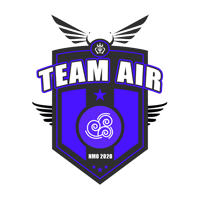
Announcement
FINAL | BUSINESS CASE - BCS 06
General Manager Submission BCS 06
NMO 2020
A Comprehensive Corporate Strategy for effective business environment change management and demonstration of state legal requirements to enter the Malaysia, Singapore & Indonesia
Submission Date & Time : 2020-04-26 02:17:50
Submitted By: Nigetha. P - General Manager From Team Air
Assignment Taken
Devise a strategy to deal with changes in the new business environment & certifications needed, also state legal requirements to enter the Malaysia, Singapore, IndonesiaCase Understanding
Ramalingam Foods is famous for its South-Indian, North Indian, desert and chutney mixes, predominantly Dosa-Idli batter, dhokla mix, Gulab jamoon mix, filter coffee etc.The company now wants international expansion for mainly two reasons- first, it found that there have been unorganized sellers of their products, which got popularities in South East, Middle East and England and second, it wants to get outside India to get good share of large market. From this case as a General Manager, the main concerns and objectives of the report are: • To prepare various certificates needed to accomplish entry into Malaysia, Singapore and Indonesia • Since there are lots of differences in customer behavior, work culture, Govt. regulations etc., it is required to formulate strategy to comply with the change in business environment evolving from this international expansion • To find the legal requirements needed to enter and set-up manufacturing unit at Malaysia and for exporting in Singapore and IndonesiaBCS Solution Summary
Global Business Consultancy Ltd. (GBC) is a pioneer in consultancy services, helping brands grow. It offers its services to various segments such as: 1. Start-Ups/MSME/MNCs 2. International/National Market Expansion 3. Product Portfolio Enhancement 4. Legal Consultancy 5. Project based Research & Analysis GBC has been helping companies for past 38 years and has a trusted client base including RBC Foods Ltd., Gymnasium Footwears Ltd., Sleepmore Polymers, Swastik Foundation to name a few. Global Business Consultancy was approached for international expansion by Ramalingam Foods (Tagline: Making Homemade Chefs Since 1965) which has a ready to cook product portfolio, predominantly South Indian food mix including dosa-idli instant mix powder, dhokla , gulab jamoon mix and filter coffee. GBC has decided the company to expand in Malaysia, Singapore and Indonesia of South-East Asia where there is huge south Indian population. The company would make greenfield expansion in Malaysia followed by export to Singapore (by road) and Indonesia (by waterways) from there. GBC has advised Ramalingam Foods to launch with current products at these three countries in this year with planned product portfolio enhancement over next two years. Ramalingam Foods will focus on R&D for product innovation (both authentic Indian and Indian themed foreign dish), marketing for extending reach cum brand building, world-class IT infrastructure for coping up with digital disruption, employee friendly productive HR policy. The regions for expansion have been chosen with a view to venture into new geographical areas as by means it already has a presence in Middle east, Southeast Asian countries and England.Solution
Strategy in New Business Environment
1.0 New Business Environment
Strategic planning is just what it sounds like. Rather than focusing on day-to-day tactics and issues like how much can you budget for next new business strategic planning takes a big-picture approach: What should the company priorities be? Where do you want to focus your resources? What are your goals for the next year or five years? Etc.
Effective Communication: Working out the strategic plan with the other key stakeholders – partners, investors and employees – ensures you're all on the same page. Putting the plan in a document can give you and your team a clearer perspective on what you need to do in the short term to create the big picture. Ensure, these communications reach to the employees periodically so that they remain focused and do not get confused.
1.1 Environmental Impact on Business
The business environment your company moves through is made up of internal and external elements. External elements include technology, law, politics, competition, media and trends. Internal environmental factors include management, your physical assets, cash flow, your business's culture and the knowledge and skill of your workforce.
1.2 Adapt and Change as the Environment Changes
Migrating to Malaysia will involve changes in Govt., Law, Technology etc. for Ramalingam Foods. This can be mitigated by the help of local partner or consultancy firm or by keeping some employees over there before the factory runs so that the said person adapts those changes and can help the fellow employees in dealing too.
If Ramalingam Food isn't expanding as fast as the strategic plan projected, then we would see identify the problem. Is it an economic downturn? Increased competition? Does your competition have the patents for the newest, coolest tech?
Once that is figured out, we can decide how to revise the plan. Once you settle on the new plan, you'll once again need buy-in from the key players. Then you can move forward until the next environmental shift.
1.3 Adapt your rhythm
“Adaptation to change is not made in a day”!
To face some organizational problems, adjusting is normal. To overcome this problem, adapt your pace to your new environment. Ramalingam Foods will certainly not be able to follow the same pace as before, at least initially. By trying to adjust your habits during our schedule, we should adapt more quickly.
1.4 Watch the competition
There will be changes in competition as many unorganized sellers of instant food will be there. There comes a necessity of studying rivals in new way. Knowing the different behaviors in our work environment allows you to understand your situation better and to how to adjust to it. We will know whom they are up against, what the expectations of the market are, and who the customers are.
1.5 Improve the Internal Process in Organization
To compete well, improving the products and services we offer, are not always the first priority as many people think. Like the human body, if our internals are not functioning well, the external system will also not work well. Therefore, we have to improve the internal operations of our entire organization. Ramalingam Foods has to make more resilient, focused organisation.
1.6 Barriers to successful transition and Coping Up with that:
|
Barrier |
Solution |
|
Not enough understanding about the change itself |
Constantly track changes by internal and customer survey by Ramalingam Foods |
|
Lack of leadership
|
Appointment of experienced personnel in Malaysia, Singapore and Indonesia |
|
No engagement and/or buy-in of key stakeholders
|
Proper and in time communication to all stakeholder of Ramalingam Foods |
|
No clear process for managing endings and beginnings, and co-ordination the change process
|
Dedicated personnel would be given responsibility to develop change management module |
|
Progress is not measured and the learning is not reviewed
|
Continuous knowledge transfer and training to employees by Ramalingam Foods |
Legal Aspects in Malaysia Government
- Introduction about Malaysia
Malaysia is a federation of 13 states and three federal territories in Southeast Asia. It has Ease of Doing Business Rank - 12 out of 188 (2019)
- Legal Aspects
Under the Registration of Business Act 1956 Sole Proprietorships and Partnerships in Malaysia must be registered with the Companies Commission of Malaysia (SSM).
2.1 Company Structure
The Act stipulates that a company must be registered with the SSM in order to engage in any business activity. There are3 types of companies that can be incorporated under the CA 2016:
i. A company limited by shares is a company formed on the principle that the members' liability is limited to the amount, if any, unpaid on the shares taken up by them.
ii. A company limited by guarantee where the liability of the members is limited to the amount which the members have undertaken to contribute to the assets of the company in the event the company is wound up.
iii. An unlimited company is a company formed on the principle of having no limit placed on the liability of its members- Ramalingam Foods comes under it.
2.2 Procedure for Incorporation
To incorporate a company, an application must be made to the SSM through the MyCoID 2016 Portal (online company incorporation and registration services launched by SSM ) by providing the following information:
- the name of the company;
- the status - private or public;
- the nature of business of the company;
- the registered address;
- the name, identification, nationality and ordinary place of residence of the member of the company;
- the name, identification, nationality and ordinary place of residence of every person who is to be the director;
- in the case of company limited by shares, the details of class and number of shares to be taken by a member;
- in the case of company limited by guarantee, the mount up to which the member undertakes to contribute to the assets of the company in the event of its being wound up.
The application must be accompanied with a fee of RM1000 (Rs. 17,514) in the case of company limited by shares; or RM 3,000 (Rs. 52543) in the case of a company limited by guarantee.
SSM undertakes to process, approve and register a complete application in a speedy and efficient manner within the time period stated as follows:
|
Activity |
Time |
|
COMPANY REGISTRATION |
|
|
Incorporation of a company |
1 day |
|
Conversion of status |
1 day |
|
Change of company name |
1 day |
|
Commencement of business for public companies |
1 day |
|
Registration of charge |
2 days |
|
Approval of a trust deed |
5 days |
|
Registration of prospectus |
3 days |
|
Uncertified copy of company documents |
30 minutes |
|
Certified copy of company documents |
1 hour |
2.3 Registration of Foreign Companies
A foreign company may carry on business in Malaysia by either:
i. incorporating a local company; or
ii. registering a branch in Malaysia- Ramalingam Foods makes greenfield investment at Malaysia
Registration Procedures
i. An applicant must first conduct a name search in order to determine if the proposed name for the intended company is available. The name to be used to register the foreign company should be the same as registered in its country of origin. Applications should be submitted to the SSM through the MyCoID 2016 Portal with a payment of RM50 for each name applied.
ii. Upon approval, applicants must submit the following registration documents to the SSM within thirty (30) days from the date of approval:
Application for Registration of Foreign Company Sec 562(1) CA 2016;
- A certified copy of the certificate of incorporation or registration of the foreign company;
- A certified copy of the foreign company's charter, statute or Memorandum and Articles of Association or other instrument defining its constitution;
- If the directors residing in Malaysia who are members of the local board of directors of the foreign company, a memorandum stating their powers that are executed by or on behalf of the foreign company, should be submitted to SSM.
- A memorandum of appointment or power of attorney authorizing the person(s) (agent) residing in Malaysia, to accept on behalf of the foreign company, any notices required to be served on such foreign company;
- Additional documents consisting copy of an application of reservation of name and copy of email from SSM approving the name of the foreign company.
iii. Registration fees depend on the share capital. For Ramalingam Foods, the fees payable is 70000 RM as we assume it does not have any share capital, a flat rate of RM70,000 shall be paid to SSM.
iv. A Notice of Registration will be issued by SSM upon compliance with the registration procedures and submission of duly completed registration documents.
2.4 E-Services
E-Services were introduced as an alternative to the traditional method of conducting business with SSM i.e. via counter services. It allows for the lodgment of documents (MyCoID Services) and the procurement of corporate and business information (e-Info Service). Payments can be made via credit card, direct debit or prepaid accounts.
MyCoID enables simultaneous registration with the Employees Provident Fund (EPF), the Inland Revenue Board of Malaysia (IRBM), the Social Security Organization (SOCSO), Small and Medium Enterprise Corporation (SME Corp) and the Human Resources Development Fund (HRDF) once a company is incorporated at SSM via a single submission. Whereas e-Info service enables for the online purchase of corporate and business information.
2.5 GST License
Among the primary forms of taxation in Malaysia are income tax, corporate tax, and sales and services tax (SST), among others. The maximum income tax rate in Malaysia is 26% while the corporate tax rate is 24% and the SST rate is 6%
3.0 Manufacturing
Malaysia's Industrial Co-ordination Act 1975 (ICA) was introduced with the aim to maintain an orderly development and growth in the country's manufacturing sector.
The ICA requires manufacturing companies with shareholders' funds of RM2.5 million and above or engaging 75 or more full-time paid employees to apply for a manufacturing licence for approval by the Ministry of International Trade and Industry (MITI).
Applications for manufacturing licences are to be submitted to the Malaysian Investment Development Authority (MIDA), an agency under MITI in charge of the promotion and coordination of industrial development in Malaysia.
4.1 Human Resource Fund
The Human Resources Development Fund (HRDF) is administered by the Human Resources Development Council (HRDC). The HRDF operates on the basis of a levy/grant system. Employers who have paid the levy will qualify for training grants from the fund to defray or subsidies training costs for their Malaysian employees. For Ramalingam Food :
|
Companies that employ 50 employees and above |
1% of employees' monthly wages |
4.2 Labour Cost
The common types of leave provided by companies include annual leave, public holiday, sick leave, maternity leave and compassionate leave. Companies also provide free medical treatment and hospitalization to their employees.
|
Regional Areas |
Minimum Wages Rates |
|
|
Monthly |
Hourly |
|
|
Peninsular Malaysia |
RM1000 |
RM4.81 |
|
Sabah, Sarawak and the Federal Territory of Labuan |
RM920 |
RM4.4 |
5.0 Labour Standards
The Department of Labour is responsible for the administration of labour laws in order to maintain industrial harmony. The labour laws stipulate the minimum requirements that apply to all types of employment.
5.1 Employment Act 1955
The main legislation, the Employment Act 1955 applies to all employees in Peninsular Malaysia and the Federal Territory of Labuan whose monthly wages do not exceed RM2,000 and all manual laborers irrespective of their wages.
Some of the obligations of an employer under the Employment Act 1955 are as follows:
- Every employee must be given a written contract of service containing all the terms and conditions
- Maintaining of labor register pertaining to personal particulars of employees, payment and deduction of wages.
- Special provisions for the protection of female employees benefits.
- Normal hours of work and other provisions relating to numbers of working hours.
- Entitlement of paid annual leave, sick leave and public holidays.
- Rate of payment for overtime and extra work.
- Procedure and responsibility of the employer in employment of foreign employees.
- Special provision to conduct sexual harassment (male and female) at workplace.
5.2 Employees Provident Fund Act 1991
The Employees Provident Fund Act 1991 stipulates a compulsory contribution for employees. Under the Act, all employers and employees (except those who are listed under the First Schedule) of the Employees Provident Fund Act 1991 must contribute to the Employees Provident Fund (EPF). The rate of contributions shall be as follows:
Age Group below 55 Years
|
Employer’s share |
(a) Monthly Wages RM5,000 and below |
|
(b) Monthly Wages Exceed RM5,000 |
|
|
Employee’s share |
Minimum of 11% of the employees’ monthly wages |
5.3 Employees’ Social Security Act 1969
The Social Security Organization (SOCSO) provides two social security schemes namely-
- Employment Injury Insurance Scheme- Employment Injury Insurance Scheme provides protection to employees who suffer from work related accidents or occupational diseases arising out o and in the course of employment in an industry. It includesMedical Benefit, Temporary/Permanent Disablement Benefit, Constant-attendance Allowance, Dependants’ Benefit etc.
- Invalidity Scheme - The Invalidity Scheme provides 24-hour coverage to employees against invalidity or death due to any cause not connected with his employment. Benefits provided under the Invalidity Scheme are Invalidity Pension, Invalidity Grant, Constant attendance Allowance, Survivors’ Pension, Funeral Benefit, Rehabilitation Benefit and Education Benefit.
5.4 Workmen's Compensation Act 1952
The Act provides for the payment of compensation for injuries sustained in accidents during employment and imposes an obligation on the employers to insure workers. The Foreign Workers’ Compensation Scheme (Insurance) Order 2005 issued under this Act requires every employer employing foreign workers to insure with the panel of insurance companies appointed under this order and to effect payment of compensation for injuries sustained from accidents during and outside working hours.
6.0 Intellectual Property Protection
Intellectual property protection in Malaysia comprises of patents, trademarks, industrial designs, copyright, geographical indications and layout designs of integrated circuits. Malaysia is a member of the World Intellectual Property Organization (WIPO) and a signatory to the Paris Convention and Berne Convention. In addition, Malaysia is also a signatory to the Agreement on Trade Related Aspects of Intellectual Property Rights (TRIPS) signed under the auspices of the World Trade Organization (WTO). Ramalingam Foods has to abide by these laws.
6.1 Patents
The Patents Act 1983 and the Patents Regulations 1986 govern patent protection in Malaysia. A foreign application can only be filed through a registered patent agent in Malaysia acting on behalf of the applicant. Protection period is of 20 years
6.2 Trade Marks
Trade mark protection is governed by the Trade Marks Act 1976 and the Trade Marks Regulations 1997.The Act provides protection for registered trademarks and service marks in Malaysia. The period of protection is ten years, renewable for a period of every ten years thereafter.
6.3 Copyright
The Copyright Act 1987 provides comprehensive protection for copyrightable works. There is no registration for copyright works. Copyright protection for literary, musical or artistic works is for the duration of the life of the author and 50 years after his death. In sound recordings, broadcasts and films, copyright protection is for 50 years after the works are first published or made.
Licenses and Certificates Required:
1. FSSAI Certificate
Food License Registration certificate is required to run a food product business. You have to register under Food Safety and Standards Authority of India (FSSAI) to manufacture, distribute and transport food products. The FSSAI has been established under the Food Safety and Standards Act, 2006.
2. Export License
FSSAI License for Export in order to export food outside the country and you need to get the approval for food product under the health ministry and from FSSAI. To obtain the license, an exporter must do the following:
- Get a valid import-export code.
- Register yourself with the Directorate General of Foreign Trade.
- Get a license from the Central Licensing Authority for exporting food items outside the country.
- Make sure that the product being exported has shelf life remaining and is packaged well to reach its destination.
3. No Objection Certificate for Exports:
We can to get a NOC before exporting the food items and this is a very important step as it will allow you to further obtain a license from the FSSAI to export out items.
The following documents to apply for a NOC:
- Country of Origin Certificate
- Importer Exporter Code (IEC) issued by the DGFT
- FSSAI Food Business License
- Bill of Entry
- The end-use declaration, a declaration that food is not GM food
- Besides this, depending on individual import items, other documents may be required.
The cost involved in getting FSSAI License for export is Rs. 18,000 for a year
4. HACCP Certificate in Malaysia:
The Malaysian Certification Scheme for Hazard Analysis and Critical Control Point system (MCS HACCP) describes procedures which apply to food premises. The certification process includes adequacy, compliance and any follow-up audits by appointed of certified auditors. The Health ministry will verify the maintenance of the certified HACCP system through surveillance audit.
The certification is granted for specific food product and is not a blanket certification for all types of food product from a food premise. The scheme is implemented through collaboration between the government, pool of independent auditors and the food premises.
4.1 HACCP Evaluation Process
The HACCP Certification Committee will conduct a meeting every month or when the need arises to approve recommendations given by the audit team leader. Certification awarded shall be valid for two years.
4.2 New Certificate and Renewal
Certification is subject to renewal every two years. New Cost – RM 4505 and Renewal Cost - RM 600.00
5. HALAL Certification:
Department of Islamic Development Malaysia ( JAKIM ) is responsible for the Islamic affairs including halal certification in Malaysia. JAKIM requires a reputable and credible foreign halal certification bodies as JAKIM representatives to monitor/verify the halal status of these raw materials and products with responsibility and integrity.
Exporting process from Malaysia to Singapore in Roadway Transportation
1.0 Introduction about Singapore
Singapore is an island country off the southern tip of the Malay Peninsula in Southeast Asia. It is separated from Malaysia by the Straits of Johor, and from Indonesia's Riau Islands by the Singapore Strait
2.0 Export Procedure
In general, exporters must apply for the relevant Customs export permits before exporting goods from Singapore. GST and duty are not levied on goods exported from Singapore. The exporter will be the party that issues the commercial invoice to his overseas customer. The exporter is also required to declare the Free on Board (FOB) value of the goods in the export permit application. A Customs export permit is required for export.
2.1 Permit
Singapore’s Customs Act, Goods and Services Tax (GST) Act, and Regulation of Imports and Exports Act govern the import of all goods into the country. The party who imports goods into Singapore for their own account or use or for the account or use of some other person is considered to be an importer. GST and/or a duty payment applies to all goods imported into Singapore for domestic consumption.
2.2 Customer Account
Unique Entity Number (UEN) by registering with the Accounting and Corporate Regulatory Authority (ACRA), or another relevant UEN issuance agency, which will allow the importer to activate its Customs Account.
Exporting process from Malaysia (Johor) to Indonesia in Vessels
1.0 Introduction about Indonesia
It consists of more than 17000 islands, including Sumatra, Java, Borneo (Kalimantan), Sulawesi, and New Guinea (Papua). Indonesia is the world's largest island country
1.1 Application for an Export License
To determine whether a license is needed to export a particular commercial product or service, an exporter must first classify the item by identifying what is called ITC (HS) Classifications.
Export license are only issued for the goods mentioned in the Schedule 2 of ITC (HS) Classifications of Export and Import items. The Export Licensing Committee under the Chairmanship of Export Commissioner considers such applications on merits for issue of export licenses.
Such terms and conditions may include Minimum Export Price (MEP), registration with specified authorities, quantitative ceilings and compliance with other laws, rules, regulations.
2.0 Registration with Bank Negara Malaysia (BNM)
Bank Negara Malaysia (BNM) is empowered to act as the regulator of banking institutions under the FSA, the IFSA and the Central Bank of Malaysia Act 2009 (CBA).
BNM has broad powers of supervision and control over banking institutions licensed under the FSA and the IFSA. In discharging its supervisory functions, BNM adopts a risk-based supervision approach, under which financial institutions are assessed and monitored based on risk profiles and adequacy of risk management systems.
|
MANDATORY DOCUMENTS LISTED BY BANK IN DOING BUSINESS REPORT |
||
|
S. No. |
EXPORTS |
IMPORTS |
|
1 |
Shipping Bill |
Bill of Entry |
|
2 |
Commercial Invoice |
Commercial invoice |
|
3 |
Packing List |
Packing List |
|
4 |
Bill of Lading |
Bill of Lading |
|
5 |
Foreign Exchange Control Form (SDF) |
Foreign Exchange Control Form (Form A-1) |
|
6 |
Terminal Handling Receipt |
Terminal Handling Receipt |
|
7 |
Technical Standard Certificate |
Certified Engineer's Report |
|
8 |
|
Cargo Release Order |
|
9 |
|
Product manual |
|
10 |
|
Inspection report |
2.1 Registration with Director General of Foreign Trade (DGFT)
Exporter a unique e-IEC Number (Electronic-Importer Exporter Code). IEC Number is a ten digits code required for the purpose of export as well as import. No exporter is allowed to export his good abroad without IEC number.
2.2 Registration with Export Promotion Council
Registered under the Malaysian Company Act, The promotion of various goods exported from Malaysia in international market. EPC (Export Promotion Councils) works in close association with the Minister of International Trade and Industry (Malaysia)
So, it becomes important for an exporter to obtain a registration cum membership certificate (RCMC) from the EPC. The RCMC certificate is valid from 1st April of the licensing year in which it was issued and shall be valid for five years ending 31st March of the licensing year, unless otherwise specified.
2.3 Registration with Tax Authorities – Malaysia to Indonesia
DPJ (Directorate General of Taxes) governs Indonesia’s tax system, helps develop a stronger economy, better environment and a more vibrant economy. All companies, regardless of industry, have a legal duty to pay taxes.
2.4 API-U (General Import License)
It is given to general trading Company who conduct import activities of fully-made product to be sold/distributed later in Indonesia. This Indonesian license may be used to import finished products or to trade goods with a third party. Applications for an API U take around 1 month.
3.0 Export Documents.
Export from Malaysia required special document depending upon the type of product and destination to be exported. Export Documents not only gives detail about the product and its destination port but are also used for the purpose of taxation and quality control inspection certification.
3.1 Shipping Bill / Bill of Export
Shipping Bill/ Bill of Export is the main document required by the Customs Authority for allowing shipment. A shipping bill is issued by the shipping agent and represents some kind of certificate for all parties, included ship's owner, seller, buyer and some other parties.
Documents Required for Post Parcel Customs Clearance:
3.2 Customs Declaration Form:
It is prescribed by the Universal Postal Union (UPU) and international apex body coordinating activities of national postal administration.
3.3 Dispatch Note
It is filled by the exporter to specify the action to be taken by the postal department at the destination in case the address is non-traceable or the parcel is refused to be accepted.
3.4 Consular Invoice
May or may not be need for Malaysia. It is prepared in the prescribed format and is signed/ certified by the counsel of the importing country located in the country of export.
3.5 Customs Invoice
Mainly needed for the export. It is prepared on a special form being presented by the Customs authorities of the importing country. It facilitates entry of goods in the importing country at preferential tariff rate.
3.6 Legalized / Visited Invoice
This shows the seller's genuineness before the appropriate consulate or chamber of commerce/ embassy.
3.7 Certified Invoice
It is required when the exporter needs to certify on the invoice that the goods are of a particular origin or manufactured/ packed at a particular place and in accordance with specific contract.
3.8 Packing List
It shows the details of goods contained in each parcel / shipment.
3.9 Certificate of Inspection
It is a type of document describing the condition of goods and confirming that they have been inspected.
3.10 Black List Certificate
It is required for countries which have strained political relation. It certifies that the ship or the aircraft carrying the goods has not touched those countries.
3.11 Manufacturer's Certificate
It is required in addition to the Certificate of Origin for few countries to show that the goods shipped have actually been manufactured and is available.
3.12 Certificate of Chemical Analysis
It is required to ensure the quality and grade of certain items such as types of tests are: verification of contaminants, chemical composition, texture analysis, viscosity level, presence or quantity of pesticides, moisture, energy values, vitamins and minerals
3.13 Certificate of Shipment
It signifies that a certain lot of goods have been shipped.
3.14 Health/ Veterinary/ Sanitary Certification
Required for export of foodstuffs
3.15 Certificate of Conditioning
It is issued by the competent office to certify compliance of humidity factor, dry weight, etc.
3.16 Antiquity Measurement
It is issued by Archaeological Survey of Malaysia in case of antiques.
3.17 Shipping Order
Issued by the Shipping (Conference) Line which intimates the exporter about the reservation of space of shipment of cargo through the specific vessel from a specified port and on a specified date.
3.18 Cart/ Lorry Ticket
It is prepared for admittance of the cargo through the port gate and includes the shipper's name, cart/ lorry No., marks on packages, quantity, etc.
3.19 Shut out Advice
It is a statement of packages which are shut out by a ship and is prepared by the concerned shed and is sent to the exporter.
3.20 Short Shipment Form
It is an application to the customs authorities at port which advises short shipment of goods and required for claiming the return.
4.0 Bonded Warehouse – Indonesia
Bonded Storage Areas, pursuant to Government Regulation No. 32 of 2009, as recently amended by Government Regulation No. 85 of 2015 ("Bonded Storage Regulation"), are areas that fulfill specific requirements which are used to store goods and receive certain facilities.
- Bonded Warehouse - A Bonded Warehouse can only store imported goods and is prohibited from storing goods from other areas.
Conclusion
Global Business Consultancy will help Ramalingam Foods in passing through all legal aspects with necessary documentation and certificates. Also, Ramalingam Foods have to formulate and abide by some policies or practices to cope up with change management occurring due to international expansion. Management principles used:  Division of work -According to departments  Authority and responsibility- Assigned to top level and managers  The degree of centralization- To maintain hierarchy  Order- by providing the employees with the right guidance and proper information  Esprit de corps – To develop proper communication channel between the departments that helps in maintaining excellence relationship with the customersAttached File Details
Participant
Nigetha. P
Chettinad College of Engineering & Technology
Pursuing MBA and I did internship at auditor office & submitted thesis about financial performance of Infosys
Team Sky BCS 06 Submission
Total Team Points: 63004.5
Team Air BCS 06 Submission
Total Team Points: 66715.5
















